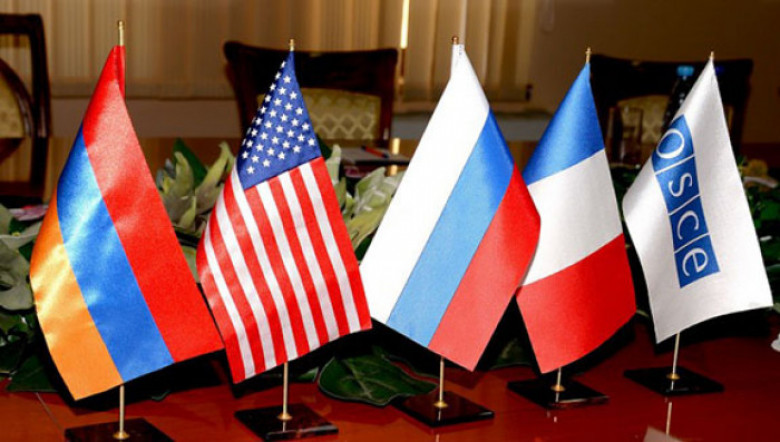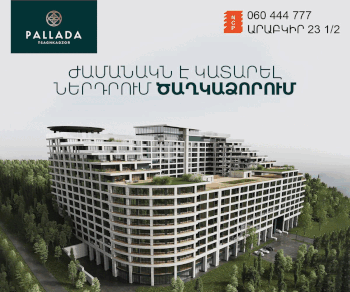AN OPEN LETTER TO THE CO-CHAIRMEN OF THE MINSK GROUP
Экономика
The Republic of Artsakh was a de facto established state, the constitutional territories of which included the territories of former Nagorno-Karabakh Autonomous Region, as well as of 7 regions returned as a result of a genocidal war waged by the Baku regime in 1991-1994, that were separated from Artsakh after June 6, 1921 at forcible annexation of Artsakh to the Soviet Azerbaijan.
At the cessation of Azerbaijan SSR from the USSR in accordance with the established Law of the USSR, Artsakh declared its independence in September 1991 as per the same Law. Theindependence of the Republic of Azerbaijan was recognized by the OSCE in March 1992, subject to the consent of Azerbaijan that the status of the Nagorno-Karabakh Republic will be determined by the OSCE.
The Republic of Artsakh became the de facto realization of the right to statehood of Azerbaijani Armenians saved from the genocide unleashed by the Baku authorities in 1987-1992.
Since the bloodshed events in Sumgait in February 1988, about 30,000 Armenian refugees found the protection of the Artsakh Defense Army in Karvachar, Shushi, Jrakan, Akn, Martakert, Kovsakan, Kashunik, Varanda, Askeran, Stepanakert and elsewhere. However, the rights of Armenian refugees of every kind were disregarded by the UN and the Co-Chairmen of the Minsk Group. It became clear that Artsakh is a territory where neither the life of people, nor their security and rights, as well as the protection of democratic communities formed by them, fall within the competence of either the UN or the Co-Chairmen of the Minsk Group.
In 1987-1992 about 362,000 Armenian refugees deported from Azerbaijan settled in the Republic of Armenia, and more than 410,000 ones settled in Russia, Europe and the United States.
After its formation, the security of the Republic of Artsakh was repeatedly violated, being subjected to the first genocidal aggression by Azerbaijan in 1991, the second one in 2016 and the third time in 2020 with wide participation of Turkish military specialists and involvement of terrorists. The danger of inevitable involvement of terrorists in the impending war against Artsakh was discussed in all our appeals to international organizations and world powers.
During the aggression in 1991, the Azerbaijanis attempted to spread the crimes of genocide to the territory of Artsakh, while in 2016 and 2020, Azerbaijan tried to violate the territorial integrity of Artsakh and disavow of its sovereignty.
It should be noted with regret that although the Minsk Group, formed after the first aggression of Azerbaijan against the Republic of Artsakh, and the co-chairmen of the Minsk Group have the exclusive mandate of mediating in the settlement of the conflict, but in their activities they invariably bypass the issue of Azerbaijan's misanthropic policy towards the Armenians of Artsakh.
The Minsk Group deliberately excluded from the negotiation process the crimes of genocide committed against Armenian citizens in Azerbaijan in 1987-1992. It is worthwhile to mention that Turkey is a member of the Minsk Group, and as such it greatly influences the adoption of the Madrid Principles and the policy of the Minsk Group towards the fair solution to the conflict. So, the Minsk Group left out of the planned negotiation process also the issue of restoring the rights of more than 800,000 Armenian refugees from the Azerbaijani SSR.
Being the country, which committed the Armenian Genocide in 1915, and first recognized this crime against humanity in 1919, it then pursued since 1921 the policy of denying or rejecting the recognition of the Armenian Genocide.
What did the population of Artsakh face in the days of aggression?
The world was outraged by the Turkish-Azerbaijan aggression against the Armenians of Artsakh with involvement of terrorists. And the aggressor, with direct military participation of Turkey, diplomatic support from Great Britain vetoing the resolution of the UN Security Council and with logistical support of munition by a number of states, continued military operations aimed at destruction of fragile economy of Artsakh, annihilation of its defense system, devastation and occupation of settlements.
Artsakh, this "unrecognized island" of democracy, was subjected to joint aggression by Turkey and Azerbaijan. The Minsk group limited itself to empty egalitarian statements perceived by the aggressors as an encouragement and guide to action.
What do the Armenians of Artsakh have today?
Notwithstanding the presence of Russian peacekeeping forces the genocidal aspirations of Baku regime strive to become a daily reality,- the cultural genocide is in progress, the Armenians are detained and tortured on the way home.
At the time of announcement of ceasefire, the condition was that the parties remain where they stayed at the moment, and that the peacekeepers enter only the territories controlled by the Armenians. In other places the civilian Armenian population undergone the state terror.
The third Artsakh war took place again on the territory of Artsakh, a large part of the territories of Artsakh being devastated and occupied, that is, a small part of the Armenians of Artsakh got the opportunity to return, the other, - larger part, was again forced out of their homes, becoming refugees, whereas the Armenian-populated areas, especially the capital Stepanakert, became the border settlements, thus ensuring the continuity of genocide,and all this being the case in the absence of any preventive measures on the part of the co-chairmen of the Minsk Group.
It seemed that under conditions when the Azeri slayers took possession of Hadrut and Shushi, and the Armenians fled the sites, the Madrid Principles of settlement and the mechanism for "bilateral" return of refugees would be put in place. In practice, however, the Madrid process was disrupted, and a unilateral return was launched for the return of only the Azeri refugees that were formed as a result of the first Azerbaijani aggression against the Artsakh Republic.
The residents of Hadrut and of Shushi would not return because the military forces of the genocidal state are stationed today in Hadrut and Shushi. The Armenians who fled from Jrakan, Kovsakan, Kashunik, Varanda during the genocidal war do not return, because in those settlements occupied by the "peacekeeping" Baku, the Azeri genocidal forces are stationed to prevent the return of the Armenians to the Artsakh territories.
Moreover, they are evicting Armenians from Karvachar and Akn, which again is a gross violation of the Madrid principles as a classic ethnic cleansing.
If today at the behest of Baku the Azeri refugees return to places of their settlement before 1994, why can't the Armenian refugees that in 1987 - 1994 took residence in Karvachar, Akn, Shushi, Jrakan, Kovsakan, Kashunik, Varanda, Hadrut, Askeran, Stepanakert, Martakert and other places in Artsakh return to their former homes in Baku and other former Armenian-populated areas of Baku and Apsheron, Sumgait, Kirovabad, Nakhichevan, Dashkesan, Tovuz, Shahumyan, other former Armenian-populated areas, Getashen subregion, why there are no peacekeepers in those former Armenian-populated areas who will ensure the return of Armenian refugees? After all, the Madrid principles presuppose the return of all refugees, and not only of Azeri ones.
On September 26, 2020, about 3,500 Armenians who fled from the Getashen subregion, Shahumyan, Dashkesan, Tovuz, Ghazakh and other regions in 1988-1992 lived in Karvachar, about 4,100 Armenians who had fled from Sumgait and Baku lived in Shushi, and today they became many-fold refugees under the watchful and peace-loving gaze of the co-chairmen of Minsk group.
Since one of the key points of the Madrid principles is the return of Azerbaijanis who left Shusha in 1992, the question arises, how did they get there? It should be recalled that on March 20, 1920, more than 20 thousand Armenian residents of Shushi, old people and children, men and women, were exterminated by units of the regular Turkish army along with the Musavat troops. The Western Caspian Tatars settled here were later renamed Azerbaijanis by Stalin's will, and from that day on these Azerbaijanis made up the majority of the population of Shushi. A hundred years later, history repeats itself, this time under the auspices of the OSCE.
At present, the tenet of the “territory for the sake of peace” was imposed on the Armenians of Artsakh, which is simply a freezing of the conflict, because in parallel with the transfer of the most of the republic territory, the very existence of the Republic of Artsakh is put in danger.
The behavior of the co-chairmen of the Minsk Group violates the logic of the Madrid principles, of all UN resolutions on the rights of refugees, by constantly supporting the possibility of genocide, and forcing Armenian refugees to emigrate again and again. This fact cannot but cause a deep disappointment.
The Forum of Refugees from the Azerbaijan SSR
































































